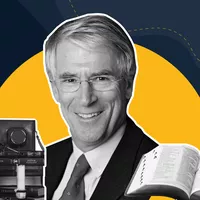42. リングイスト の 姿勢 に ついて . 基本 的に 人間 は みな 同じだ
||しせい|||きほん|てきに|にんげん|||おなじだ
42. auf die Haltung des Ringisten. Im Grunde sind alle Menschen gleich.
42. on the posture of the ringist. Basically, we are all the same.
42. na postura do anilhador. Basicamente, todos os humanos são iguais.
DNA の 発見 に よって 、 私 達 は 道教 の 思想 家 達 が 直感 的に わかって いた こと を 今に なって 理解 できる ように なった : 即 ち 、 みんな 同じだ 、 と いう こと を 。
dna||はっけん|||わたくし|さとる||どうきょう||しそう|いえ|さとる||ちょっかん|てきに|||||いまに||りかい||||そく|||おなじだ||||
The discovery of DNA enabled us to now understand what Taoist thinkers were intuitively aware: immediately, they are all the same.
人間 は 驚く ほど 均質 で 共通の 祖先 を 持って いる 。
にんげん||おどろく||きんしつ||きょうつうの|そせん||もって|
Humans are surprisingly homogeneous and have a common ancestor.
リチャード ・ ドーキンス が その 著書 『 遺伝子 の 川 』(“ River Out of Eden ”) で 明確に 説明 して いる ように 、 我々 の 遺伝子 は 子孫 を 生殖 する に 足る 長い 期間 生き延びる こと の できた 祖先 達 に よって 伝え られた もの である 。
||||ちょしょ|いでんし||かわ|river|out||eden||めいかくに|せつめい||||われわれ||いでんし||しそん||せいしょく|||たる|ながい|きかん|いきのびる||||そせん|さとる|||つたえ|||
As Richard Dawkins clearly explains in his book “The River of Eden”, our genes are by virtue of the ancestors who have survived for a long enough time to reproduce their offspring. It is the one that was transmitted.
我々 が 持って いる 多く の 特性 、 血液型 や ある 疾病 に 対する 免疫 性 など 、 は 肌 の 色 や 体型 など の より 表面 的な 違い を 超越 して いる 。
われわれ||もって||おおく||とくせい|けつえきがた|||しっぺい||たいする|めんえき|せい|||はだ||いろ||たいけい||||ひょうめん|てきな|ちがい||ちょうえつ||
Many of the properties that we possess, such as blood type and immunity to certain diseases, transcend more superficial differences such as skin color and body type.
現在 我々 は 互いに 異なって いる ように 見える が 、 今 生きて いる 人間 すべて の 祖先 は 約 5万 年 前 に 存在 して いた たった 一 人 の 共通の 男性 な のである 。
げんざい|われわれ||たがいに|ことなって|||みえる||いま|いきて||にんげん|||そせん||やく|よろず|とし|ぜん||そんざい||||ひと|じん||きょうつうの|だんせい||
Although we now seem to be different from each other, the ancestors of all living human beings are the only common man that existed about 50,000 years ago.
再び スペンサー ・ ウェルズ の 『 人類 の 旅路 遺伝子 の オデッセイ 』(“ The Journey of Man , A Genetic Odyssey ”) から 引用 する と 、「 現在 の 地域 的な 人種 集団 を 区別 する 身体 的な 特性 は 3万 年 前 程 前 の 化石 の 記録 に 現れる だけ である 。
ふたたび||||じんるい||たびじ|いでんし|||the|journey||man|a|genetic|odyssey||いんよう|||げんざい||ちいき|てきな|じんしゅ|しゅうだん||くべつ||からだ|てきな|とくせい||よろず|とし|ぜん|ほど|ぜん||かせき||きろく||あらわれる||
Quoting again from Spencer Wells' The Journey of Man, A Genetic Odyssey, "the physical traits that distinguish the current regional racial population are 30,000 years. It only appears in the fossil records of the previous time.
アフリカ 人 、 アジア 人 、 ヨーロッパ 人 の もっと 古い 化石 は 互いに 大変 よく 似て いる 。」
あふりか|じん|あじあ|じん|よーろっぱ|じん|||ふるい|かせき||たがいに|たいへん||にて|
Older fossils of Africans, Asians, and Europeans are very similar to each other. "
外国 語 を もっと よく 発音 できる ように お 金 を かけて 舌 の 手術 を した 人 が いる と いう 話 を 聞いた こと が ある 。
がいこく|ご||||はつおん||||きむ|||した||しゅじゅつ|||じん|||||はなし||きいた|||
I've heard stories of people who have spent money on their tongue to help them speak better in foreign languages.
Słyszałem, że niektórzy ludzie przeszli operację języka za pieniądze, aby lepiej wymawiać języki obce.
本当 か どう か 何とも 言え ない が 、 そういう 話 が ある と いう こと は いかに 先祖 伝来 の 言葉 と の 関わり が 持続 する もの である か と いう 証拠 である 。
ほんとう||||なんとも|いえ||||はなし||||||||せんぞ|でんらい||ことば|||かかわり||じぞく|||||||しょうこ|
I can't say if it's true or not, but the fact that there is such a story is proof of how persistent the relationship with the ancestral language is.
Nie mogę powiedzieć, czy to prawda, czy nie, ale fakt, że istnieje taka historia, jest dowodem na to, jak trwały jest związek z językiem przodków.
もし あなた が 生まれた とたん に 人種 の 違う 誰 か の 養子 に さ れたら 、 舌 の 手術 など し なくて も かれ ら の 言葉 を 喋れる ように なる だろう 。
|||うまれた|||じんしゅ||ちがう|だれ|||ようし||||した||しゅじゅつ||||||||ことば||しゃべれる|||
If you were adopted by someone of a different race as soon as you were born, you would be able to speak their words without having to have tongue surgery.
Gdybyś został adoptowany przez kogoś innej rasy zaraz po urodzeniu, byłbyś w stanie wypowiedzieć jego słowa bez konieczności poddawania się operacji języka.

